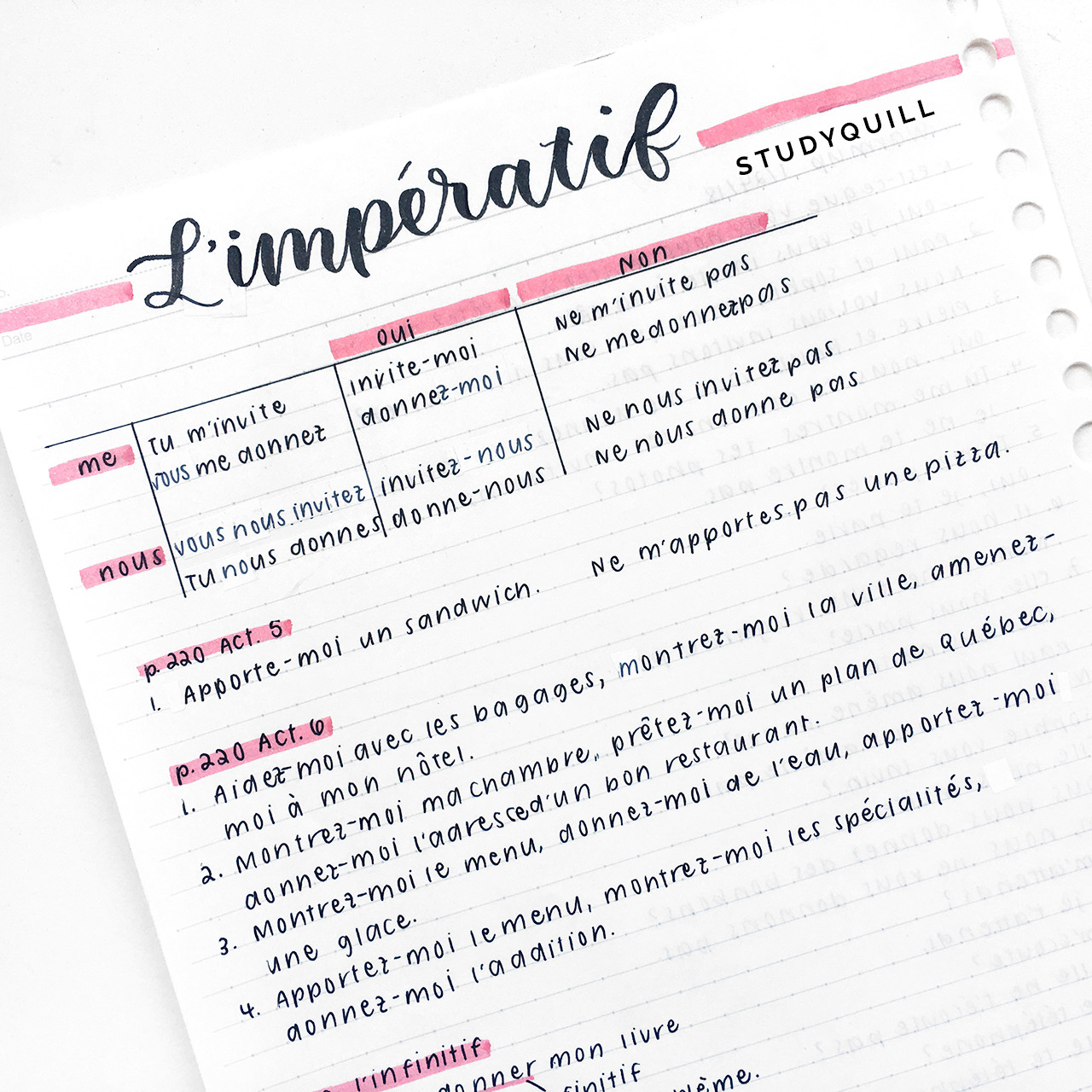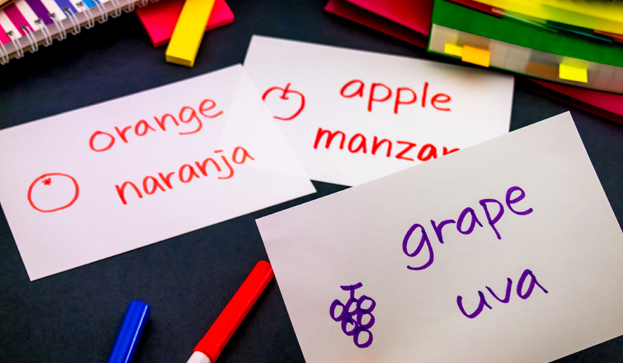
Are Flashcards Effective For Language Learning?
Flashcards are effective for language learning if you make and study them in the correct way. This is by making your own flashcards, using spaced repetition to study them, including example sentences on them, making your flashcards more enriching with images and audio and by trying not to use english on them. Flashcards are not effective when you solely rely on them to learn a language, make flashcards with singular words without context and when you don’t consistently revise them.
Flashcards Are Effective For Language Learning If You Do These Things…
1. Make Your Own Flashcards
Studying flashcards that were made by someone else might seem like a time saver at first. There are so many shared flashcard decks and also pre-made decks on flashcard apps and programs that will let you start studying instantly. They make studying a language so easy in the short term however you won’t save much time in the long run.
By making your own flashcards you are making study sets that are relevant to you with vocabulary related to your interests. More importantly though, making your own flashcards improves your memory. One of the most important parts of the learning process is taking in new information, processing it and then recreating it in your own words or methods of explaining that information. In short, by creating your own flashcards you will build strong neural pathways which will allow you to easily retrieve what you have learned at a later time.
2. Use Spaced Repetition
Spaced repetition involves studying at increasing intervals until knowledge is fully in your long term memory. If you don’t use spaced repetition how much you remember is represented in the graph below:
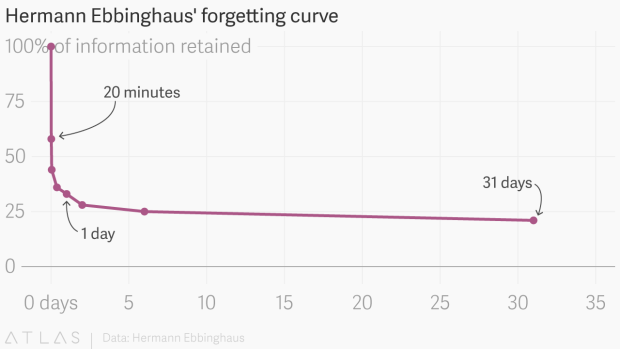
To overcome the curve of forgetting when it comes to vocabulary learning with flashcards one needs to use spaced repetition in their study routine. As you can see in the graph below, if you review over gradually increasing time periods you can get your retention rate back up to 100%.
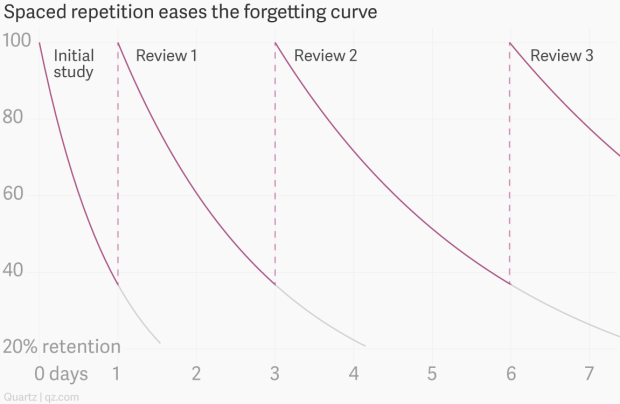
There are many different flashcard apps and online platforms that utilise spaced repetition so you can learn your vocabulary at the optimal intervals based on whether you get the flashcards right or wrong as you study them. I really do like those programs but I also equally like to use physical flashcards with Leitner boxes. Leitner boxes work using spaced repetition by starting all flashcards in box one and then gradually moving up the boxes as you answer the flashcards correctly. Each box has a study schedule e.g. study everyday, study every second day etc. that increases in duration for the higher box numbers. If you answer a flashcard incorrectly it goes back to box one and the process starts again. You can find my printable study boxes here!
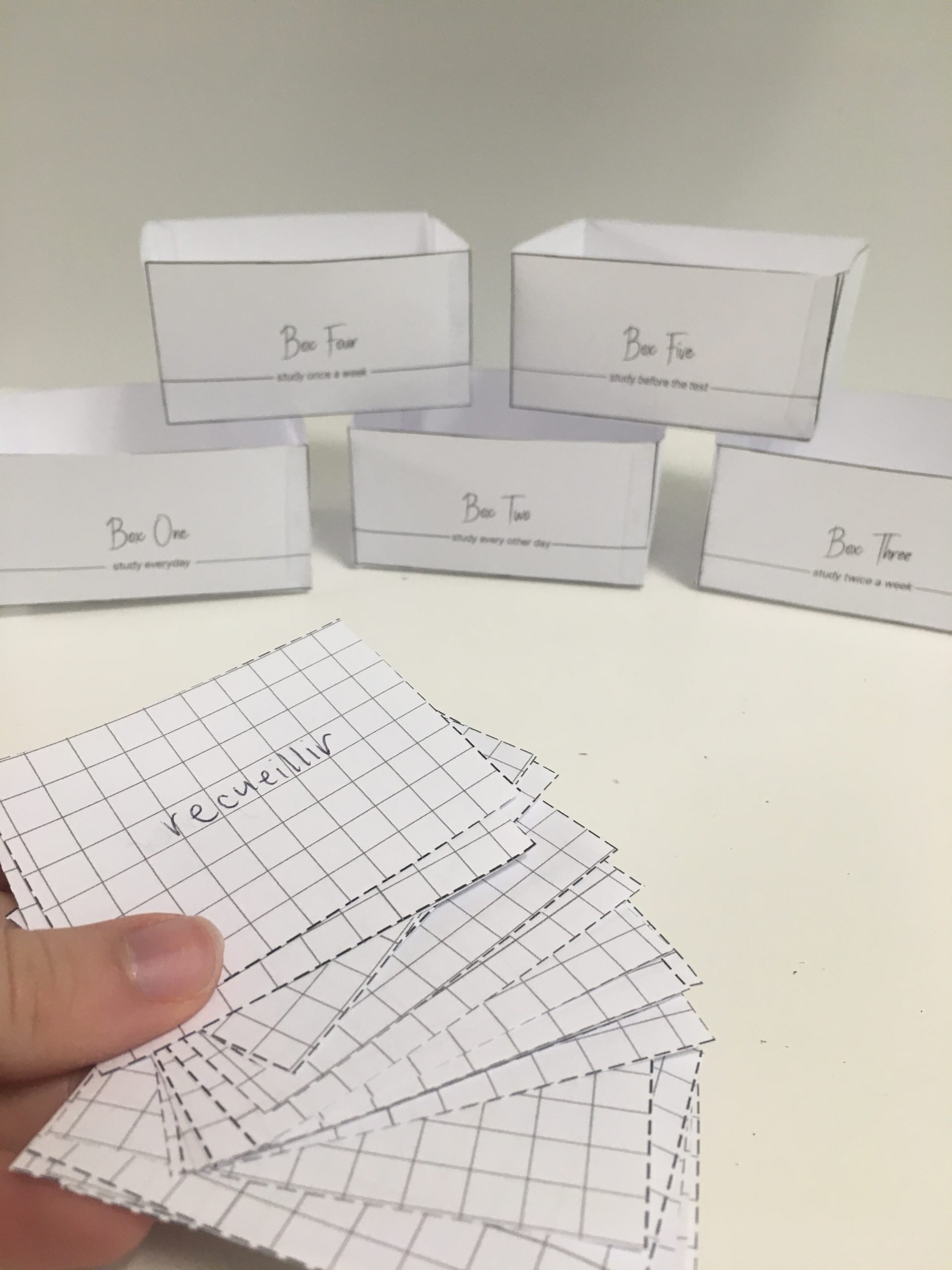
3. Include Example Sentences
Including example sentences is super important for making effective flashcards for language learning. The majority of language learners make flashcards with a single word on one side and then the english translation on the other. This is a big mistake!
Learning words in context i.e. in a sentence, is much more beneficial for your journey towards fluency as you will be able to remember how to use the word and what it means from the sentence. Using an example sentence will also enrich your vocabulary as you will be learning all the words surrounding the keyword in the sentence as well.
The sentences that you use should come from something you have read or listened to in your target language to ensure that you are learning something correct. If the word is not from something you encountered, you can search up example sentences online or in a foreign language dictionary.
4. Include Images & Audio If Possible
Adding images and audio is much better than just plain old text based flashcards as it will make the content much more memorable. According to the Picture Superiority Effect in cognitive psychology, people tend to remember imagery much better than remembering words.
As it goes for images, I would suggest that you draw what the word means onto your flashcard. Alternatively you could print images out or even easier, if you are using digital flashcards just add images from the internet.
Evidently you cannot add audio to physical flashcards however if you use a digital app such as Anki or Quizlet you should be able to. As it goes for audio, these apps will have a feature where a voice will say the word or words on the flashcard out loud so you can learn the pronunciation.
5. Have No English On Your Flashcards
This is a language learning approach that not many people use however it is super effective! Instead of putting definitions on the back of your flashcards in english use a picture or when you are at a high enough level in your target language, write a definition in it.
The benefit of this is that you will be fully immersed in the language for your whole review of the flashcard set. You are not switching between languages so it ends up being more efficient. And you also learn heaps of additional vocabulary when you start writing the definitions in your target language as well!
Flashcards Are Not Effective For Language Learning If You Make These Mistakes…
1. You Solely Use Flashcards To Learn A Language
Language learning is all about balance between the core areas – reading, listening, speaking and writing. The problem is that many language learners become blinded by the positive results of mass learning vocabulary with flashcards that they forget to put it to use in these areas. If you are learning a heap of vocabulary but not using it, it will become very difficult to start putting it all together to form sentences in speaking and writing as well as understand it in reading and listening.
2. Make Flashcards With Random, Single Words Without Context
As I have briefly touched on above, you should not make flashcards with random single words without context.
Here is an example of what you should not do:
- Front: Lundi
- Back: Monday
- Front: Mardi
- Back: Tuesday
- Front: Mercredi
- Back: Wednesday
- Etc.
^ These are single word flashcards without context
Here is what you should do instead:
- Front: Le _______ est le premier jour de la semaine
- Back: Lundi
3. You Don’t Consistently Revise Your Flashcards
Another common mistake that language learners make is spend heaps of time making their flashcards, study them once and then never look at them again. This is not an effective way of learning with flashcards as for them to work properly you need to study them multiple times at increasing intervals. The information will then go into your long term memory.
Before You Go!
Check Out My Digital Language Learning Planner
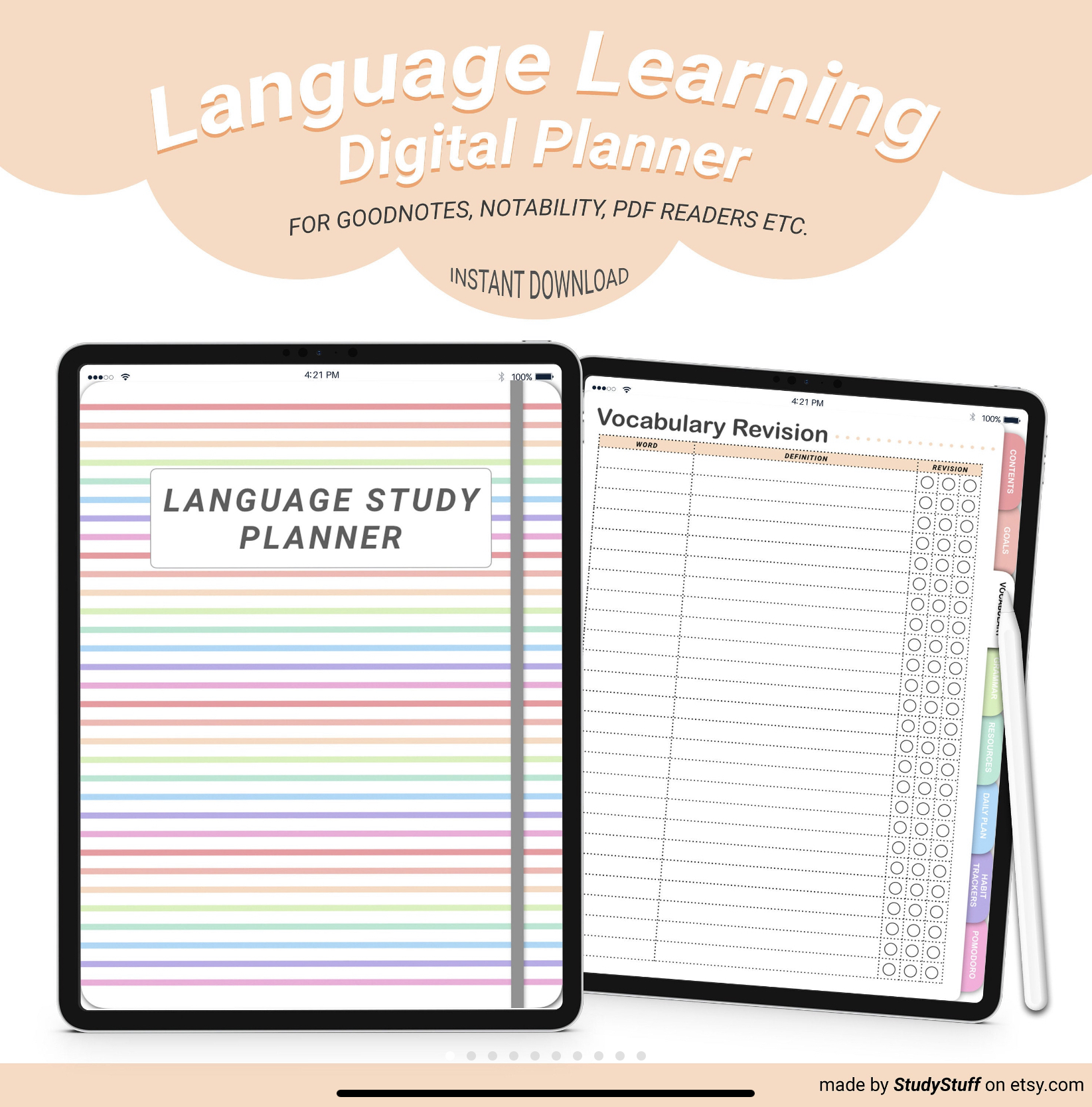
Or Try Out The Printable Version Here!
Join more than 1,212,346 people from 192 countries and learn a new language at your own pace at Rocket Languages!
Check Out The Online Courses Below:
Or Join A Live Online Language Learning Class With Real Teachers On Lingoda!
Check Out The Online Courses Below:
Further Reading
The best ways to learn a language without going to classes include: watching foreign language films on Netflix, using a …
There are many different note taking methods that can work well for language learning. To take effective notes for language …
If you are working full time and you want to learn a language, you need to make the most of …
Kinesthetic learners are the most physical of all learning styles meaning they absorb information through movement, touch and motion. Therefore, …
65% of the population are visual learners and therefore learn best by using images, graphics, colours, computers, books and other …
Want to learn a language without a teacher but need some ideas for where to start? You have come to the …




